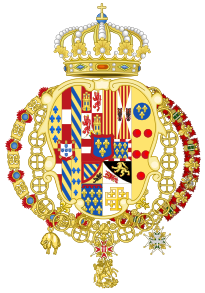 While I was unsure before about whether or not Shylock is villain or victim in The Merchant of Venice, upon closer inspection, the BBC "Theatre in Video" production seemed to be leaning towards villain. Shylock's character is dressed in all black, and the actor chosen was shorter than any other. Whether intentional or not, the visual difference between Shylock and other men sets him apart from them, and the black clothing suggest evil or darkness. Maybe even a 'black heart'. In the climax of the play, the court scene, Shylock and Antonio are placed much more closely on stage than I would have pictured them. The producers seem to be saying, "look at this man, he can stand a foot away from a good man like Antonio and demand his life." Villain. The physical closeness of the characters, and Antonio's friends intense pleadings with Shylock, reveal a heartless and unforgiving man.
While I was unsure before about whether or not Shylock is villain or victim in The Merchant of Venice, upon closer inspection, the BBC "Theatre in Video" production seemed to be leaning towards villain. Shylock's character is dressed in all black, and the actor chosen was shorter than any other. Whether intentional or not, the visual difference between Shylock and other men sets him apart from them, and the black clothing suggest evil or darkness. Maybe even a 'black heart'. In the climax of the play, the court scene, Shylock and Antonio are placed much more closely on stage than I would have pictured them. The producers seem to be saying, "look at this man, he can stand a foot away from a good man like Antonio and demand his life." Villain. The physical closeness of the characters, and Antonio's friends intense pleadings with Shylock, reveal a heartless and unforgiving man.The themes of mercy and justice were also extremely emphasized in the film. Shylock refuses to have mercy on Antonio, saying he wants justice to be fulfilled. Portia(disguised as the lawyer Balthazar) tries to convice Shylock to take his money and leave. The actress helped me to better understand the theme in the way she softly, almost pleadingly, encouraged Shylock to show mercy. But when the tables were turned and Shylock was the one in need of mercy, the judge spared his life before Shylock could even ask. The judge said it was "the see the difference in our spirit." So once again Shylock is the villain, the one who showed no mercy and asked for justice. It was the judge, by Antonio's request, who portrayed the Christian concept of mercy when he could have dealt Shylock with justice.
So there you go, Shylock is the villain and he got what he deserved. Right?
Oh.. poor guy..
Some other things that I noticed about the production:
 |
| Antonio(right) saying goodbye to Bassanio(left) with Portia(disguised as lawyer) listening in. |
- It was set up like a stage production, but obviously for a movie viewing audience. The actors talked too softly for a play, moved around too much, and interacted with the camera.
- I like that all the [asides] that weren't to another character were directed at the camera. It formed a connection between me and the character, like they were confiding in me as a viewer.
- The setting was very minimalistic, but the costumes were extravagant. Called attention and focus to the actor.
- Camera angles usually focused on speaker, but sometimes captured powerful emotions in listeners
- Shylock's daughter, Jessica, didn't have a Hebrew accent. This is a foreshadow of her running away with a Christian and not identifying herself with the Jews.
- The women in the court scene were not very well disguised as men. It emphasized the gullibility and ignorance of the men for not recognizing them.








